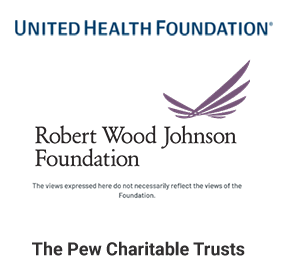You are here
Summit Series Provides Platform to Set Actions for The Future for Public Health, Including Its Workforce
While the public health community has worked heroically to take on COVID-19, the pandemic has exposed critical weaknesses in our public health system. Many of these weaknesses have been amplified following decades of underinvestment in public health’s infrastructure and workforce across all levels of government. Today, with an influx of funding in response to the pandemic we have an opportunity to ensure these new investments are strategically deployed to establish solid footing for public health going forward.
It was with this background that the CDC Foundation and our co-hosts this week launched the Lights, Camera, Action: The Future of Public Health Summit Series. The selection of title has significance.
- Lights represent guiding lights from research as well as exemplars in the field in practice and policy.
- The camera represents the view of public health through the lens of the pandemic and the need to refocus the camera to create trust, positive actions to transform public health.
- Action includes local, state and national steps officials can take to address issues illuminated by the lights and captured through the camera.
The first summit focused on the all-important topic of achieving a diverse and robust public health workforce. This summit featured public health luminaries as well as practitioners from across the public health spectrum who provided insights around the needs as well as how to seize this moment in time.
According to Centers for Disease Control and Prevention (CDC) Director Rochelle Walensky, MD, MPH, “We’re here today because we agree—we never again want to see public health in the position it was at the start of the pandemic.”
She continued, “We need the right people, in the right place… with the right training… at the right time, to protect Americans from public health threats. We must build a robust public health workforce—a workforce that is appropriately trained, technically expert, and reflective of the diversity within the communities they serve.”
CDC’s Dr. Patricia Simone in talking about the needs for the public health workforce stressed the need for broad-based support for public health. “Rebuilding and sustaining the public health workforce can’t rely on federal funding alone. It also needs a commitment from state and local jurisdictions to address systemic barriers and develop plans to rebuild and sustain the public health workforce.”
Along those lines, Dr. Anne Zink, chief medical officer for the Alaska Department of Health and Social Services, emphasized short- and long-term solutions for supporting our public health workforce. Short term, for instance, she said we must ensure a culture of inclusion and recruit new workers with essential skills to represent the communities being served, while also making it easier to work in governmental agencies. “Long-term,” she continued, “[we must have] better projections of the workforce in the future, invest in new pipelines for a wide range of public health positions with the tools they need to do their job.”
I want to thank our co-hosts for the summit series, the Association of State and Territorial Health Officials, National Association of County and City Health Officials, and Big Cities Health Coalition.
I also deeply appreciate our partners—United Health Foundation and the Robert Wood Johnson Foundation—who stepped forward to provide initial support for the Lights, Camera, Action Summit Series and to help catalyze activities needed to propel a positive action that rebuilds confidence and transforms our nation’s public health system. Partners interested in joining in support of this critical work may contact our team at advancement@cdcfoundation.org
Earlier this week, I provided some additional perspectives about the summit series in this interview that ran on ASTHO’s Public Health Review. Looking ahead, the summit series co-hosts will soon share a report of the first summit, including reflections from the conference chat, to build on the conversations.
I’m looking forward to our three upcoming summits, which will focus on creating an interoperable and modern data and technology infrastructure (January 25, 2022), effectively financing government public health functions and strengthening public health law (February 2022), and catalyzing cross-sectoral partnerships (March 2022). Learn more about the summit series.
Together we must write a new script and create actions to build the public health system of the future.

